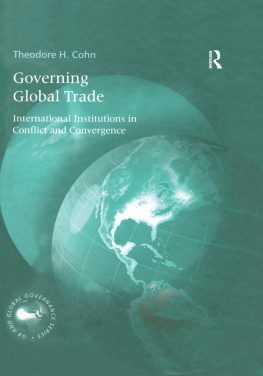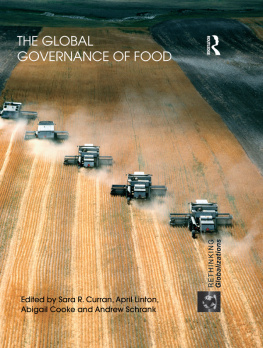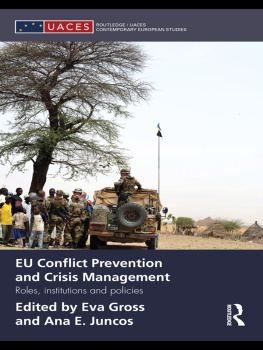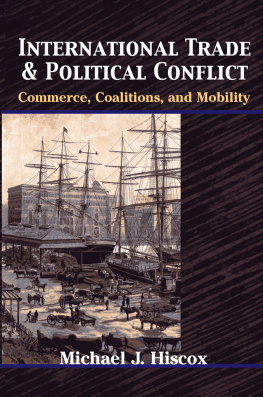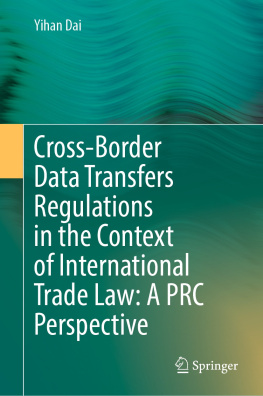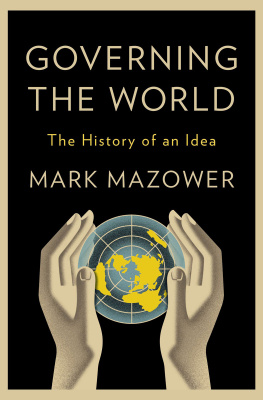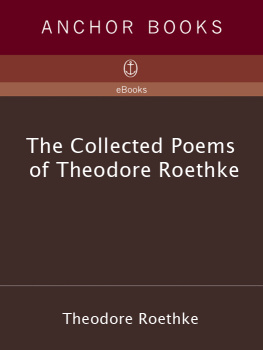Governing Global Trade
The G8 and Global Governance Series
Series Editor: John J. Kirton
The G8 and Global Governance Series explores the issues, the institutions, and the strategies of the participants in the G8 network of global governance, and other actors, processes, and challenges that shape global order in the twenty-first century. Many aspects of globalisation, once considered domestic, are now moving into the international arena, generating a need for broader and deeper international co-operation and demanding new centres of leadership to revitalise, reform, reinforce, and even replace the galaxy of multilateral institutions created in 1945. In response, the G8, composed of the worlds major market democracies, including Russia and the European Union, is emerging as an effective source of global governance. The G8 and Global Governance Series focusses on the new issues at the centre of global governance, covering topics such as finance, investment, and trade, as well as transnational threats to human security and traditional and emerging political and security challenges. The series examines the often invisible network of G8, G7, and other institutions as they operate inside and outside established international systems to generate desired outcomes and create a new order. It analyses how individual G8 members and other international actors, including multinational firms, civil society organisations, and other international institutions, devise and implement strategies to achieve their preferred global order.
Also in the series
New Directions in Global Economic Governance
Edited by John J. Kirton and George M. von Furstenberg
ISBN 07546 16983
The New Transatlantic Agenda
Edited by Hall Gardner and Radoslava Stefanova
ISBN 07546 17807
Guiding Global Order
Edited by John J. Kirton, Joseph P. Daniels and Andreas Freytag
ISBN 07546 15022
Shaping a New International Financial System
Edited by Karl Kaiser, John J. Kirton and Joseph P. Daniels
ISBN 07546 14123
Hanging In There
Nicholas Bayne
ISBN 07546 1185 X
The G7/G8 System
Peter I. Hajnal
ISBN 184014776 8
New Directions in Global Political Governance
Edited by John J. Kirton and Junichi Takase
ISBN 07546 1833 1
The G8s Role in the New Millennium
Edited by Michael R. Hodges, John J. Kirton and Joseph P. Daniels
ISBN 184014 7741
First published 2002 by Ashgate Publishing
Published 2017 by Routledge
2 Park Square, Milton Park, Abingdon, Oxon, OX14 4RN
711 Third Avenue, New York, NY 10017, USA
Routledge is an imprint of the Taylor & Francis Group, an informa business
Copyright Theodore H. Cohn 2002
All rights reserved. No part of this book may be reprinted or reproduced or utilised in any form or by any electronic, mechanical, or other means, now known or hereafter invented, including photocopying and recording, or in any information storage or retrieval system, without permission in writing from the publishers.
Notice:
Product or corporate names may be trademarks or registered trademarks, and are used only for identification and explanation without intent to infringe.
British Library Cataloguing in Publication Data
Cohn, Theodore H., 1940-
Governing global trade : international institutions in
conflict and convergence. - (The G8 and global governance
series)
1 .Group of Seven (Organization) 2.Group of Eight
(Organization) 3.0rganisation for Economic Co-operation and
Development 4.Quadrilateral group 5.International trade
I.Title
382.91
Library of Congress Cataloging-in-Publication Data
Cohn, Theodore H., 1940-
Governing global trade : international institutions in conflict and convergence /
Theodore H. Cohn.
p. cm. -- (The G8 and global governance series)
Includes bibliographical references and index.
ISBN 0-7546-1593-6
1. International economic relations--History--20th century. 2. Organisation for
Economic Co-operation and Development--History. 3. Group of Seven
(Organization)--History. 4. Group of Eight (Organization)--History. 5. General
Agreement on Tariffs and Trade (Organization)--History. 6. World Trade
Organization--History. 7. Summit meetings--History--20th century. I. Title. II. Series.
HF1359 .C655 2002
382.91--dc21
2002074547
ISBN 13: 978-0-7546-1593-4 (hbk)
This book is closely related to my long-term interests in international trade and in regime theory. Most studies of the global trade regime have focused on the General Agreement on Tariffs and Trade (GATT), and its successor the World Trade Organization (WTO) as the international organisations responsible for upholding the trade regimes principles, norms, and rules. However, to understand decision-making procedures of the global trade regime, it is not sufficient to limit ones study to the GATTAVTO. This book begins the process of examining the complexity of decision-making procedures in the global trade regime by focusing on the role of three developed country-led insitutions and their relationship to the GATTAVTO: the Group of Seven/Group of Eight (G7/G8), the Quadrilateral group (Quad), and the Organisation for Economic Cooperation and Development (OECD). Of these institutions, the Quadrilateral group of trade ministers from the United States, the European Union, Japan, and Canada has received the least amount of attention in the literature. This book devotes a smaller amount of space to developing countries and their institutions because they have been less influential in the global trade regime. However, discuss the fact that developing countries have had a more important role in the global trade regime in recent years.
A major thesis of this book is that decision-making procedures in the global trade regime are pyramidal, with developed country-led and institutions near the top of the pyramid, and developing country-oriented institutions near the bottom. The idea of pyramidal structure is applied primarily to an examination of the United States and the European Union as the two largest trading entities, the G7/G8, the Quad, and the OECD. As this book discusses, the position of actors and institutions on the global trade regime pyramid is not static. Thus, three key questions are addressed: How and why have the United States, the EU, the G7/G8, the Quad, and the OECD become influential in the global trade regime, what is the nature of their influence, and how has their influence changed over time? The book also discusses the challenges developing countries and civil society groups have posed to the pyramidal structure of the global trade regime.
I am grateful for the comments, advice, and support of many individuals. First, I would like to thank John Kirton of the University of Toronto for asking me to write this book for the G8 and Global Governance Series. Initial discussions with John were extremely helpful in deciding on the organisation and content of the book. I also owe a great deal of thanks to Jonathan Fried, David Chatterson, and Randall Wilson in Canadas Department of Foreign Affairs and International Trade (DFAIT) for providing access to relevant documents, and helpful information and feedback. Another individual I owe special thanks to is Jerry Shannon, a former Canadian Deputy Minister of Trade, whose perspective on the issues was very helpful. I also am especially indebted to Peter Hajnal of the University of Toronto, and Heidi Ullrich of the London School of Economics and Political Science for providing useful information.

